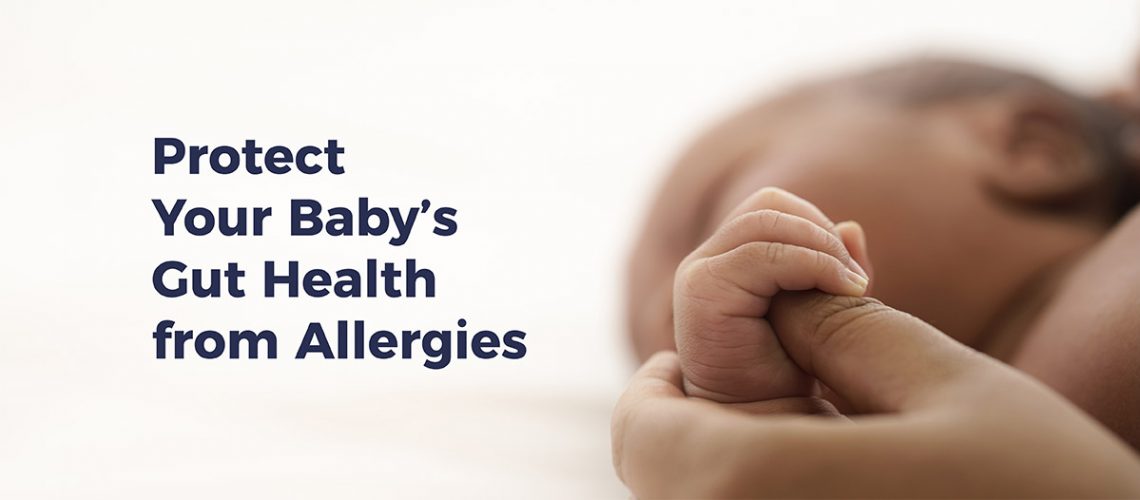Digest This
Click on the topics below to learn how probiotics can improve your digestive health, naturally.

The Link Between Childhood Allergies And Gut Health
- @drHoberman
- Children’s Health, Healthy Aging
Protect Your Baby’s Gut Health From Allergies
Building great gut health starts with a solid foundation. For a new mom, that’s making gut-smart choices like breastfeeding her new baby for as long as she can and doing her best to avoid a c-section birth.
Doing those two things can go a long way toward developing a diverse, balanced microbiome that protects your child from persistent health issues like allergies as he/she grows up.
Unfortunately, c-section rates remain high for new moms (even for those first-time moms with low-risk births) and breastfeeding numbers drop sharply after 6 months, according to numbers collected by the CDC.
So, we shouldn’t be surprised that childhood allergies are also on the rise due to a lack of diversity in gut bacteria, according to a pair of reports.
Gut Bacteria Imbalances
The findings of the two studies, appearing recently in Nature Communications and Pediatric Allergy and Immunology, mirrored each other in one important way: The balance of bacteria determined a child’s susceptibility to food or respiratory allergies.
For example, Italian researchers in the Nature study identified specific microbial signatures that stood out due to their higher inflammatory potential (thanks to an uptick in the production of pro-inflammatory molecules) and depleted levels of beneficial bacteria in fecal samples taken from allergic kids compared to healthy ones.
Overall, less than a third of the children with food allergies developed a healthy immunity to problematic foods like cow’s milk, eggs, nuts, or fruit by the end of a three-year monitoring period.
These same challenges with the lack of microbial diversity were very evident in the Pediatric Allergy and Immunology study over an extended five-year time-frame too.
Based on stool samples taken from children ages 3-5, patients with allergies had far less diverse microbiomes than healthy kids, especially among young patients sensitive to peanuts and milk.
A Probiotic Solution
Although there were no mentions in either study about breastfeeding or natural childbirth, based on previous reports we’ve shared, we know both have a positive impact on reducing your child’s chances of food or respiratory allergies.
Not to mention, feeding your baby formula exclusively has been found to increase the incidence of respiratory problems and asthma significantly.
Unfortunately, more than a few new moms may not have the option of having natural childbirth or breastfeeding, so what do you do?
You may want to consider giving your baby a multi-species probiotic like EndoMune Junior Advanced Powder that contains four basic building blocks of beneficial bacteria from the Bifidobacterium and Lactobacillus families, along with a prebiotic (FOS) that feeds the good guys in her/his developing gut.
But, before starting your baby on EndoMune Junior in its powdered form or its Chewable berry-flavored tablet, please check in with your pediatrician.
Resources
There Is An Endomune Probiotic For Every Lifestyle
-
EndoMune Metabolic Rescue
$44.95 -
EndoMune Advanced Probiotic
$42.95 -
EndoMune Companion Pack
$112.93








